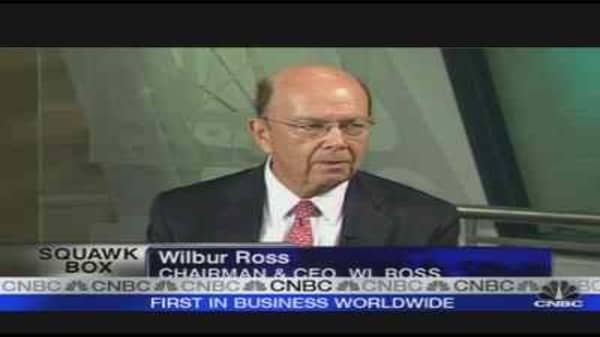Stocks had their worst selloff since the Sept. 11 attacks in 2001, with the Dow plummeting more than 500 points amid escalating fear about a collapse of AIG.
In the final minutes of trading, major indexes broke through their July lows, with the Dow Jones Industrial Average plunging a whopping 504.48, or 4.4 percent, to close at 10917.51. The last time the Dow lost more than 500 points in a single session was Sept. 17, 2001.
The S&P 500tumbled4.7 percent to close at 1192.96, while the Nasdaq lost 3.6 percent. The CBOE Volatility Index, considered the best gauge of fear in the market, jumped over 30. Each time the VIX has surpassed 30 this year — January, March and July — the market has made a bottom.
The market is worried about a possible failure of AIG — as early as tomorrow morning — said Matt Cheslock, a senior specialist at Cohen Specialists, and traders just don't want to stick their necks out amid that kind of uncertainty.
"When the Fed came out and said they [AIG] have got to go to alternative sources, that means no one would want to bail out AIG without any backup," Cheslock said. "If AIG fails tomorrow morning, it's the same thing written all over this market," he said. "I don't think anyone is going to want to take any positions overnight."
-------------
- Video: Maria Bartiromo's Market Message for Sept. 15, 2008
-------------
AIG , which has lost 80 percent of its value since the start of the year, plunged 60 percent, making it the Dow's top decliner by a long shot.
Of course, financials were a heavy albatross on the Dow, with AIG, Bank of America and Citigroup accounting for about half of the Dow's decline.
Traders were encouraged, albeit briefly, by a Wall Street Journal report that the federal government has asked Goldman Sachs and JPMorgan to lead a $70 billion to $75 billion lending facilityfor AIG.
Stocks got off to a rough start after a trifecta of Wall Street pain unfolded late Sunday: Lehman Brothers filed for bankruptcy, Merrill Lynch was bought by Bank of America and AIG took the unprecedented move of asking the Fed for short-term financing.




